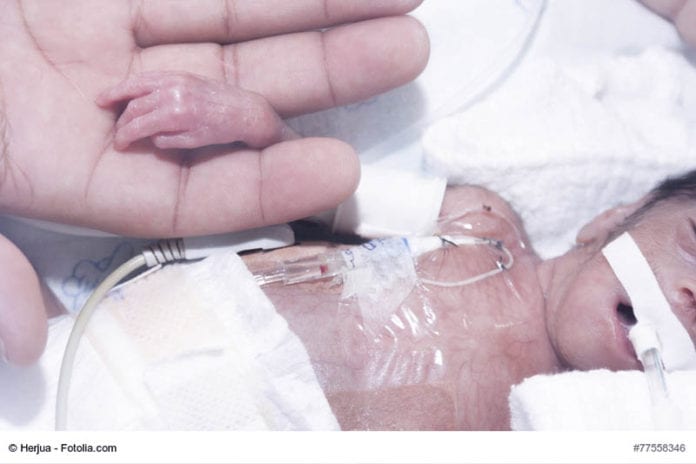Most expectant parents look forward to the arrival of a healthy, well-developed baby. A premature birth drastically alters this expectation. The parents will have immediate worries about their infant's survival. They are unfamiliar with the thin and frail appearance of a premature infant. Rather than taking their new baby home to a quiet nursery, they must deal with the noisy, busy, and technical environment of the NICU. As time passes, new concerns often arise about the effects of prematurity on the health and growth of their child.
Many parents of premature infants experience high levels of stress, depression, and anxiety. Some may respond by avoiding the NICU or refraining from touching or holding their infant. Others may try to over-stimulate their infant in hopes of getting a reassuring response. Such parental behaviors may interfere with normal parent-infant bonding and hinder the growth and development of the infant.
A solution from nursing research: helping parents cope
In studying the reactions of parents to a premature birth, nurse scientist Dr. Bernadette Melnyk found that they are often overwhelmed, and feel lost and helpless in the NICU. They typically do not know how best to parent their preemies in the NICU or how to touch, comfort, or soothe their infant.
Dr. Melnyk and her associates designed a program called Creating Opportunities for Parent Empowerment, or COPE. COPE helps parents gain the knowledge, skills, and confidence needed to improve their caregiving abilities, as a way to alleviate stress. Her reasoning was simple, "If we can decrease depression and anxiety symptoms for the parents, then the outcomes of the children should be better."
The COPE program provides the parents with a series of CDs and workbooks that provide information on the typical physical characteristics, developmental stages, and behaviors of premature infants. Nurses work with the parents in the NICU to help them understand this information and how it relates to their own infant. For instance, the nurses can teach the parents to read behavioral cues – open eyes and an attentive gaze often signals the infant is alert and ready to interact, while blinking or closed eyes and turning away indicates the infant is tired and needs to rest.
Does COPE work?
To test the effects of COPE, Dr. Melnyk conducted a clinical trial involving over 200 families of premature infants. She found that the use of COPE improved the knowledge and beliefs parents had about their premature infants. This helped the parents to interact with their infant in a more positive way, appropriate to the infant’s developmental level. Fathers in the COPE program tended to be more involved in the infant's care in the NICU than fathers not in the program; while mothers in the COPE program had lower stress in the NICU and lower anxiety and depressive symptoms after the infant came home than mothers who did not receive COPE.
When compared with standard care, this intervention decreased the length of NICU hospitalization for the infants by about 4 days, which translated to reduced associated hospital costs of about $4,800 per infant. In infants under 32 weeks gestation, the net savings was about 8 fewer days in the NICU per infant, or nearly $10,000.
Discussions with the NICU staff indicated two possible reasons for these shortened hospital stays: the infants had improved growth and development, and the parents were better prepared and more confident to provide care at home.
The impact of COPE
After publishing these results, Dr. Melnyk received calls about COPE from neonatal units across the country looking to improve their care. If more widely used, the program could help premature infants and their parents across the country, and result in a large savings in health care costs related to prematurity. Meanwhile, Dr. Melnyk and her team are continuing to follow these infants, to examine the impact of COPE on long-term developmental and behavioral outcomes.
According to Dr. Melnyk, "The COPE program helps parents feel more confident with their special babies and interact more appropriately with them to facilitate their development. This translates to less stress, less depression, better parenting, and healthier children."
This research was supported by a grant from the National Institute of Nursing Research.
Additional resources for information on COPE:
American Academy of Nursing, Edge Runners profile: "Creating Opportunities for Parent Empowerment (COPE): Reducing Parent Stress and Hospital Costs for Preterm Infants Through Parent Education and Skills Building."
Available at:http://www.aannet.org/assets/docs/RaisetheVoice/EdgeRunnerProfiles/2012NewProfiles/rtv_creating%20opportunities%20for%20parent%20empowerment%20cope_web.pdf
COPE for Hope: Information available at www.copeforhope.com


